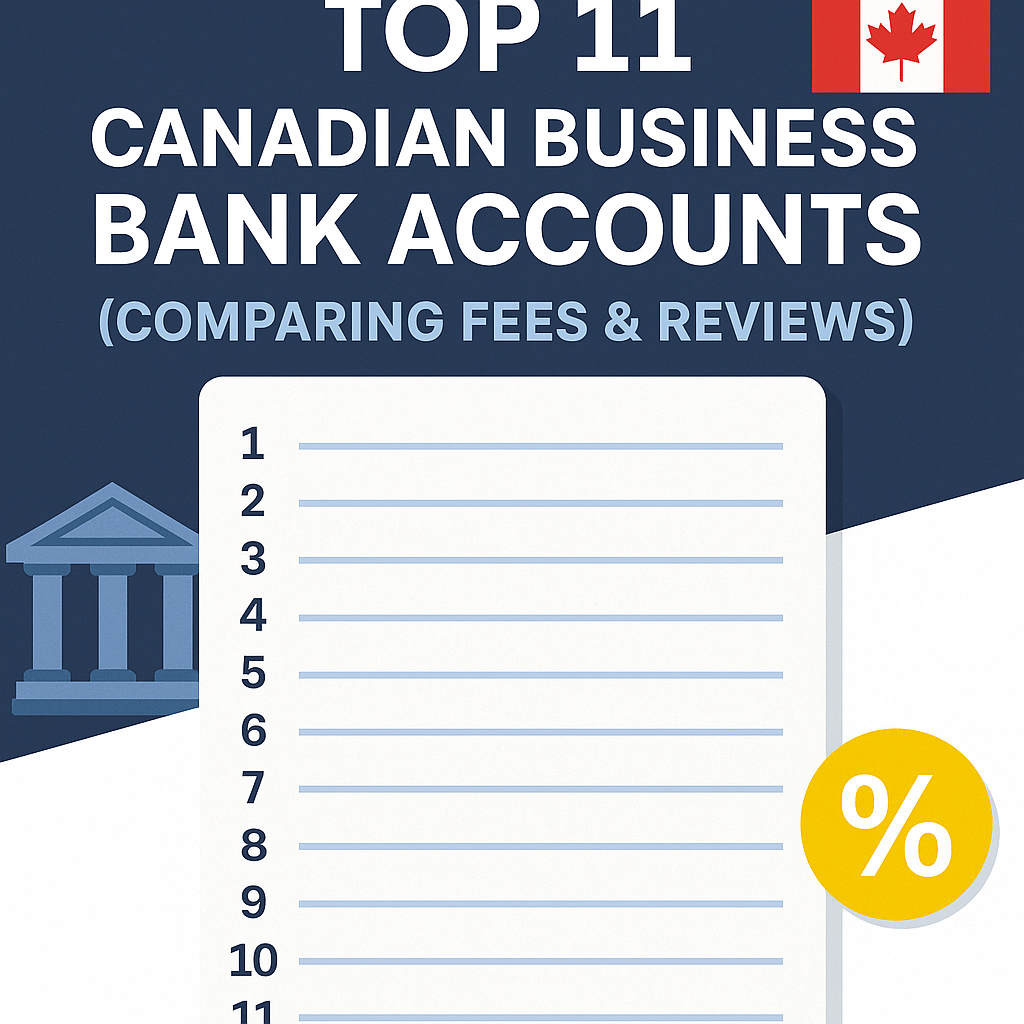GOOGLE ADS MANAGEMENT
ALL SERVICES- GRAPHIC DESIGN & BRANDING
➥ WEBSITE DESIGN TORONTO
➥ TORONTO LOGO DESIGN
➥ BROCHURE GRAPHIC DESIGN
➥ INFOGRAPHIC DESIGN
➥ BUSINESS CARD DESIGN
➥ PACKAGE DESIGN TORONTO
➥ ILLUSTRATION DESIGN
➥ ADVERTISING POSTER DESIGN
➥ BRANDING STRATEGY & SERVICES- ➤ VIEW ALL SERVICES
WEB DEVELOPMENT & SUPPORT
➥ CUSTOM WEB DESIGN TORONTO
➥ ECOMMERCE WEBSITE DESIGN TORONTO
➥ WEBSITE MAINTENANCE SERVICES
➥ SHOPIFY WEBSITE DESIGN
➥ SHOPIFY EXPERTS TORONTO
➥ WORDPRESS DEVELOPMENT
➥ WORDPRESS MAINTENANCE- ➤ VIEW ALL SERVICES
WEBSITE MARKETING & CONTENT
➥ SEO PACKAGES TORONTO
➥ TORONTO SOCIAL MEDIA AGENCY
➥ CONTENT MARKETING TORONTO
➥ PPC MANAGEMENT TORONTO
➥ AFFILIATE MARKETING CANADA
➥ STRATEGIC CONSULTATION- ➤ VIEW ALL SERVICES
ABOUT
RESOURCES- LET’S CHAT
Questions? Call us at
647-348-4995

GOOGLE ADS MANAGEMENT
ALL SERVICES- GRAPHIC DESIGN & BRANDING
➥ WEBSITE DESIGN TORONTO
➥ TORONTO LOGO DESIGN
➥ BROCHURE GRAPHIC DESIGN
➥ INFOGRAPHIC DESIGN
➥ BUSINESS CARD DESIGN
➥ PACKAGE DESIGN TORONTO
➥ ILLUSTRATION DESIGN
➥ ADVERTISING POSTER DESIGN
➥ BRANDING STRATEGY & SERVICES- ➤ VIEW ALL SERVICES
WEB DEVELOPMENT & SUPPORT
➥ CUSTOM WEB DESIGN TORONTO
➥ ECOMMERCE WEBSITE DESIGN TORONTO
➥ WEBSITE MAINTENANCE SERVICES
➥ SHOPIFY WEBSITE DESIGN
➥ SHOPIFY EXPERTS TORONTO
➥ WORDPRESS DEVELOPMENT
➥ WORDPRESS MAINTENANCE- ➤ VIEW ALL SERVICES
WEBSITE MARKETING & CONTENT
➥ SEO PACKAGES TORONTO
➥ TORONTO SOCIAL MEDIA AGENCY
➥ CONTENT MARKETING TORONTO
➥ PPC MANAGEMENT TORONTO
➥ AFFILIATE MARKETING CANADA
➥ STRATEGIC CONSULTATION- ➤ VIEW ALL SERVICES
ABOUT
RESOURCES- LET’S CHAT
Questions? Call us at
647-348-4995

GOOGLE ADS MANAGEMENT
ALL SERVICES- GRAPHIC DESIGN & BRANDING
➥ WEBSITE DESIGN TORONTO
➥ TORONTO LOGO DESIGN
➥ BROCHURE GRAPHIC DESIGN
➥ INFOGRAPHIC DESIGN
➥ BUSINESS CARD DESIGN
➥ PACKAGE DESIGN TORONTO
➥ ILLUSTRATION DESIGN
➥ ADVERTISING POSTER DESIGN
➥ BRANDING STRATEGY & SERVICES- ➤ VIEW ALL SERVICES
WEB DEVELOPMENT & SUPPORT
➥ CUSTOM WEB DESIGN TORONTO
➥ ECOMMERCE WEBSITE DESIGN TORONTO
➥ WEBSITE MAINTENANCE SERVICES
➥ SHOPIFY WEBSITE DESIGN
➥ SHOPIFY EXPERTS TORONTO
➥ WORDPRESS DEVELOPMENT
➥ WORDPRESS MAINTENANCE- ➤ VIEW ALL SERVICES
WEBSITE MARKETING & CONTENT
➥ SEO PACKAGES TORONTO
➥ TORONTO SOCIAL MEDIA AGENCY
➥ CONTENT MARKETING TORONTO
➥ PPC MANAGEMENT TORONTO
➥ AFFILIATE MARKETING CANADA
➥ STRATEGIC CONSULTATION- ➤ VIEW ALL SERVICES
ABOUT
RESOURCES- LET’S CHAT
Questions? Call us at
647-348-4995

GOOGLE ADS MANAGEMENT
ALL SERVICES- GRAPHIC DESIGN & BRANDING
➥ WEBSITE DESIGN TORONTO
➥ TORONTO LOGO DESIGN
➥ BROCHURE GRAPHIC DESIGN
➥ INFOGRAPHIC DESIGN
➥ BUSINESS CARD DESIGN
➥ PACKAGE DESIGN TORONTO
➥ ILLUSTRATION DESIGN
➥ ADVERTISING POSTER DESIGN
➥ BRANDING STRATEGY & SERVICES- ➤ VIEW ALL SERVICES
WEB DEVELOPMENT & SUPPORT
➥ CUSTOM WEB DESIGN TORONTO
➥ ECOMMERCE WEBSITE DESIGN TORONTO
➥ WEBSITE MAINTENANCE SERVICES
➥ SHOPIFY WEBSITE DESIGN
➥ SHOPIFY EXPERTS TORONTO
➥ WORDPRESS DEVELOPMENT
➥ WORDPRESS MAINTENANCE- ➤ VIEW ALL SERVICES
WEBSITE MARKETING & CONTENT
➥ SEO PACKAGES TORONTO
➥ TORONTO SOCIAL MEDIA AGENCY
➥ CONTENT MARKETING TORONTO
➥ PPC MANAGEMENT TORONTO
➥ AFFILIATE MARKETING CANADA
➥ STRATEGIC CONSULTATION- ➤ VIEW ALL SERVICES
ABOUT
RESOURCES- LET’S CHAT
Questions? Call us at
647-348-4995
![]()
![]()
![]()

- March 27, 2020
-
 Sarah Bauder
Sarah Bauder
The COVID-19 global pandemic will undoubtedly be characterized as the defining moment of our modern age. Around the world, nations are grappling with the repercussions of the coronavirus outbreak, taking extreme measures in an attempt to curtail its spread. Here in Ontario, the provincial government has mandated the closure of all non-essential business for a period of 14 days, in an attempt to combat the spread of the virus. Throughout Toronto, increasingly retail stores are posting “Temporarily closed” signs. Small businesses across the city, and indeed, across the country, have been affected by the spread of the coronavirus. However, this crisis will inevitably come to an end, and we will return to normalcy. To truly flourish, retailers must be proactive and utilize things like exceptional retail website design and marketing services. In this article, we will discuss 5 tips for retail stores to thrive in a post coronavirus landscape.
Emphasize Online Shopping Models
In mere months, society, as we know it, has been completely altered. Indeed, governments and health authorities are implementing social distancing and even mass lockdowns in an attempt to stop the spread of COVID-19. As a result now more than ever, people are shopping online. Once we return to a semblance of normalcy again, there will still be residual concerns surrounding the virus. To truly thrive in a post Coronavirus landscape, retail stores and retail brands will have to emphasize online shopping models. Essentially, if you can offer your goods or services online, do so. Retailers must pivot quickly to keep abreast of what will undoubtedly become an ever more popular consumer behaviour in the next several months.

Your Website Is Now Your Storefront
Given that people will be spending more time than ever online, it’s crucial for retailers to see their websites as their storefronts. To thrive in a post Coronavirus landscape, retail store owners must understand that excellent website design is essential for establishing your retail brand’s credibility. A 2019 study found that 63% of Canadians admitted they will not buy from a company that has a poorly designed website. This statistic ought to give retailers pause, considering well over half the potential consumer base does not trust a business with poor website design.
Trustworthiness is an integral component of building brand credibility, which in turn, will instill customer confidence in your business. Having great web design, powerful web development, coupled with effective marketing strategies is crucial for retail stores to thrive in a post Coronavirus landscape.
Now more than ever, in order to truly flourish a retailer must ensure that its website provides an exceptional online shopping experience. This will foster brand loyalty, which will drive digital sales, ultimately increasing the growth of your retail store.
Consider A Shopify Store For Your Retail Brand
Shopify is an entire E-commerce platform, providing a simple, affordable, and effective method of selling products online. Launched in 2004, it has become the highest-rated E-commerce platform on the planet. Some of the major companies that use Shopify include everyone from Budweiser and Penguin Books, to The Economist and New York Times Store.
Upon the relaunch of its online store in 2017, the New York Times explained why it chose Shopify:
“The store redesign is part of a renewed focus on The Times brand, and leverages the power of The Times’s world-class journalism to further engage its devoted readership at every touchpoint of their lives. The new design runs on Shopify Plus, the E-commerce platform, and provides a high-speed, consumer-focused experience focused on the uniqueness of The Times, and what The Times means to its hundreds of millions of readers all over the world.
As of 2019, the company had over 1 million businesses hailing from 175 countries, which generated over $41 billion in sales. Suffice it to say, Shopify is an e-commerce solution that retail brands should consider, especially in a post Coronavirus landscape.
Retail stores that choose to utilize the platform, must look for the best Shopify web development and Shopify website support services to maximize the benefits of the platform.
Offer Digital Gift Cards
Offering digital gift cards on your website is an excellent way to inject much needed cash flow amid these uncertain times. Additionally, it will ensure that customers return to your business once the COVID-19 crisis begins to dissipate.
To benefit your customers and further incentivize them, consider offering discounted digital gift cards. For instance, a half-price discount on a $50 gift card for $25 is a good place to start.

Mark Cuban’s Advice To Small Businesses During The COVID-19 Pandemic
Billionaire entrepreneur, Mark Cuban, knows a thing or two about owning and operating a business. In response to the increasing fears over the COVID-19 pandemic and the economic fallout, Cuban took to LinkedIn answering questions from small business owners on how to weather the crisis:
“If you have a small business that you run and or own and you have questions about what to do now, I’ll try to answer some questions. Won’t be able to get them all. But I’ll try over the course of today to respond to as many as I can. My preference is going to be helping small biz trying to avoid layoffs and hourly reductions.”
Unsurprisingly, small business owners leapt at the opportunity and questions for Cuban rolled in. He provided sound advice to small business owners about taking some semblance of control during these uncertain and challenging times.
“Rather than focusing on how bad it is, focus on how you can use this time to connect with your future customers. This is also a good time to clean up all the little messes every small business has. Everyone has things they wish they could re-do. Now is the time to make those changes,” Cuban explained.
With regards to small businesses operating in industries badly affected by the pandemic, Cuban advised a pivot towards other services.
“If you can find other services to offer, do it. Since you have holes in your schedule, it’s a great time to experiment with new lines of business and see what sticks,” he wrote.
Another piece of advice for small businesses in particularly hard hit industries was collaboration with competitors.
“People who may not have been as open in the past will be far more likely to explore options and partnerships that kick in post-corona than they were in the past.
They are all in the same boat. Try to figure out the best way to reignite the industry,” advised Cuban.
Cuban also encouraged small business owners to focus on future customers in the post Coronavirus landscape.
“This is an opportunity for you to get the word out that you will have a post-corona special price or you will be open for business whenever your customers need you,” he explained.
How The COVID-19 Economic Response Plan Pertains To Retail Stores
The global COVID-19 pandemic is a fluid situation, which changes daily. In addition to the public health and safety ramifications, Canadian small businesses (in particular, retail stores) are grappling with the economic repercussions of the pandemic. The retail sector is the largest employer in Canada. As a retailer, it is essential that you are aware of the relief measures that have now been implemented by the federal government with the COVID-19 Economic Response Plan. Small businesses such as retail stores will be far more equipped to prevail over the effects of the pandemic, if they are aware of the economic support now available.
The Retail Council of Canada (RCC) represents over 45,000 retail businesses across the country. In an attempt to make it easier for retailers to understand how the federal measures will specifically impact them, the RCC has provided a summary pertaining to retail businesses.
“On March 18, 2020, the federal government announced more than $82 billion in assistance to Canadian individuals and businesses impacted by the extraordinary measures prompted by the COVID-19 pandemic. This includes $27.4 billion in direct relief for Canadian businesses and individuals, and $55 billion to meet liquidity needs for businesses and individuals in the form of tax deferrals until September. This combined amount represents more than 3% of Canada’s annual GDP.”
Additionally, the RCC highlighted updates to crucial areas of the federal plan:
“The Federal Government has announced new steps to support businesses including:
- The previously announced 10% wage subsidy for small and medium businesses will be replaced by a 75% wage subsidy, which will be retroactive to March 15.
- Through a new Canada Emergency Business Account, banks will offer $40,000 loans to small businesses, interest-free for the first year, and $10,000 will be forgivable for qualifying businesses.
- All GST and HST payments, as well as payments for duties and taxes in imports, will be deferred until June 2020.”
Moreover, regarding Ontario’s mandatory 14-day closure of non-essential workplaces, the RCC emphasizes the provincial support being provided to businesses:
“There will be deferrals in place on all 10 of the provincial business taxes, including the Employer Health Tax, the provincial portion of property tax, as well as on all WSIB payments. The current package includes the following:
- All 10 Provincial Business Taxes will be deferred until at least Aug 31st, interest & penalty-free including the Employer Health Tax, all fuel taxes, beer and wine taxes.
- For the Employer Health Tax, the minimum payroll amount of $490,000 will be increased to $1,000,000 for 2020. That means businesses with payrolls less than a million will not have to pay any EHT. For eligible private-sector employers with payrolls up to $5 million, the first $1 million of total Ontario remuneration is exempt, increasing the exemption to $19,500 for 2020.
- All WSIB premium payments will be deferred for 6 months. In the interim, the Province will cover all employee claims.
- The Provincial portion of Property Tax will be deferred for 90 days (Education payments).
- Finally, Ontario is postponing property tax reassessment for 1 year (reassessments were to start in May – this has been delayed until May, 2021).
- All municipal time-of-day delivery restrictions have been lifted for food, medication and essential household items for the next 18 months.”
The world has been ushered into the most challenging and uncertain period of our modern age. Undoubtedly, the COVID-19 global pandemic will be regarded as the defining moment of our times. Yet, there is light at the end of the tunnel, and we will prevail together. In the interim, stay safe, stay well, stay connected to family, friends, and neighbours, and remember – This too shall pass.

Sarah Bauder is a senior content specialist at Little Dragon Media. Sarah has a degree in journalism and has a decade of experience writing content at numerous renowned publications. She enjoys writing about digital marketing, business, entrepreneurship and more.
RECENT POSTS
- 10 Small Business Loans & Financing Options in Ontario
- Top 8 Small Business Insurance Providers in Canada (2025)
- Top 11 Canadian Business Bank Accounts (Comparing Fees & Reviews)
- SCAM ALERT: How a Fake Google Ads Inquiry Nearly Got Us (And How to Protect Yourself)
- Google My Business: 9 Tips to Ensure Your GMB profile Stands Out in the Map Pack

Ready to chat about how Little Dragon Media can enhance your business?
Call us now at 647-348-4995 or

OUR AWARDS & CERTIFICATIONS






WHAT OUR CLIENTS ARE SAYING



Little Dragon Media's professionalism and commitment to delivering excellence are truly commendable. I highly recommend their services... Thank you for your stellar work!
- Delna Bharucha

Little Dragon Media worked on developing our logo and website. They did an absolutely AMAZING job on both projects. These guys ROCK and you won't be disappointed.
- Sonia Nutt

My team had a great experience working with Little Dragon Media. We will certainly engage with Little Dragon Media for any additional projects in the future. Highly recommend!
- Carly Rooney



- 682A St-Clair West Toronto, ON M6C 1B1
- (647)-348-4995
- info@littledragon.ca
MOST POPULAR SERVICES
RECENT POSTS
GET MORE CLIENTS
Don't let your competitors take over. We'll help you climb to the top and get more clients.



- 682A St-Clair West Toronto, ON M6C1B1
- (647)-348-4995
- info@littledragon.ca
MOST POPULAR SERVICES
RECENT POSTS
GET MORE CLIENTS
Don't let your competitors take over. We'll help you climb to the top and get more clients.

Contact | Press Mentions | Privacy Policy | Terms of Service
© 2024 Little Dragon Media. All Rights Reserved.






